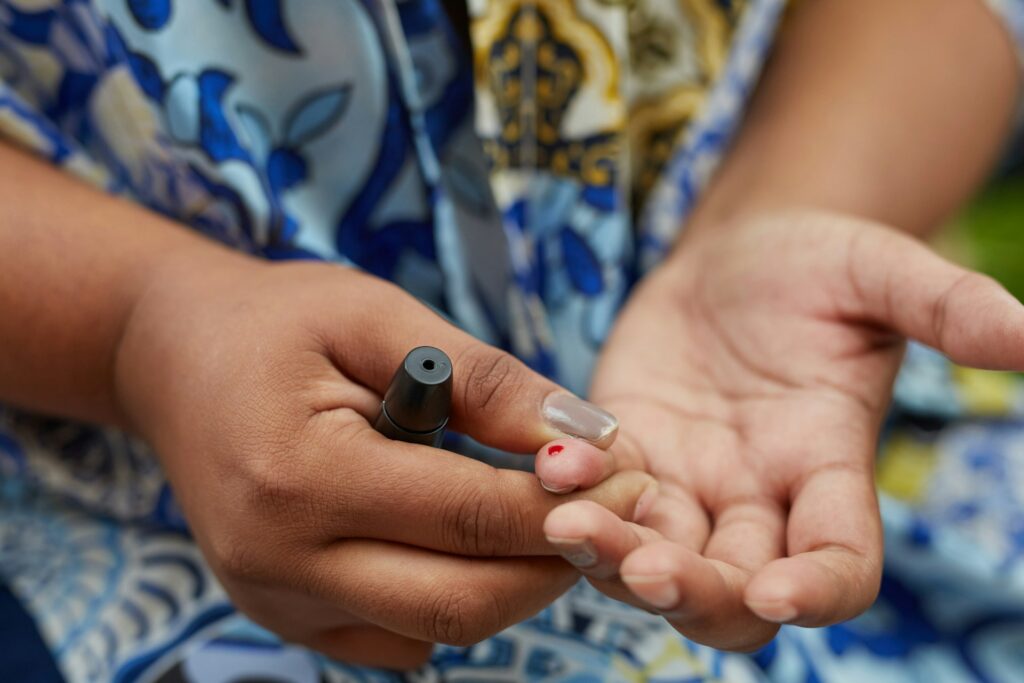
Are you stressed? Understand stress and how it affects you
Stress is a commonly used word. But do we all understand what it is? It means different things to different people. So we will unpack stress in this blog.
What is stress?
Stress is the way the body reacts to the situation around us. These situations are constantly changing. Some of them are in our lives constantly and we cannot do anything about them. Some of them occur suddenly.
Our reactions to these situations also change. Our reactions can be physical, biological, and mental. This is known as the stress response or simply stress.
The stress response is important to keep us alive and healthy. It can also threaten our well-being when it gets out of control.
The stress response
The stress response starts with our senses….what we see, hear, smell, feel, or taste.
Something we see, hear, smell, feel or taste can trigger the brain to send signals to our muscles. Our muscles receive this information and get tensed and tight, bracing for trouble.
At the same time, the brain sends messages to tiny organs that are located above the kidneys. These tiny organs are called the adrenal glands.
As soon as the adrenal glands receive the stress message from the brain, they release the stress hormones called adrenaline, noradrenaline, and cortisol.
Adrenaline and noradrenaline cause the reactions we feel when we are under stress; 1) our heart beats faster; 2) we take quick breaths; 3) we break out in a sweat; 4) our blood pressure rises.
Cortisol causes our liver to release blood sugar to provide energy that will enable us to react fast to the situation.
All of these changes are to help us run away (flight) from or fight back (fight) the cause of the stressful situation. This is known as the fight or flight response.
Cortisol also helps us stay alert for a longer time even when the stressful trigger has stopped.
Because of this, the stress response does not subside even after the stressful event has stopped. It continues for a long time and may even get worse in a manner that the body never relaxes again. And the reality is that stressful events pile up as we go through the day.
This is what we want Viedial clients to know and stay mindful about. This is because it has serious effects on the body. A sustained stress response leads to an increase in blood sugar and blood pressure that can persist for a long time. That is why it is important to manage stress.
The first step to managing stress is to understand the stressors
What are common types of stressors in life?
There are four common types of stressors in life. These are time stress, anticipatory stress, situational stress, and encounter stress.
- Time stress: stress that is related to time to complete a task. For example, deadlines, writing exams that are timed, etc.
- Anticipatory stress: stress related to upcoming events like an exam, wedding, or even holidays.
- Situational stress: these are caused by situations that are not within your control like an accident, family emergency, bad news, etc
- Encounter stress: these are caused by encounters with people or objects in the environment like relationships with people, pets.
Let us put this all together with an example.
You have an event coming up. Let us say your sister’s wedding.
There are so many things to do before the wedding. You need to book the hall, get a cake, send out invitations, etc. You go ahead to make a plan with clear timelines. These timelines become deadlines and as time passes, they create time stress.
Then you receive news that the vendor making the cake is unable to deliver it a day before the wedding because of an accident they had. This becomes situational stress.
One or two things are not going as planned and then you get this feeling that the day won’t be as beautiful as you planned. This becomes anticipatory stress.
On top of all of this, your distant cousins who are not on speaking terms with any member of your immediate family arrive for the wedding. You are nervous about speaking to them. This creates encounter stress.
Now that you understand what can cause stress, let us reflect on common stressors in your daily lives.
Common stressors in our daily lives
- Waking up at a certain time to get ready for work or other daily activities
- Supporting other family members to prepare in the morning like kids
- Driving through traffic jams or running to catch the train or bus
- Making presentations at work
- Dealing with a difficult colleague at work
- Caring for elderly parents and young children
- Meeting work deadlines
- Keeping appointments
- Accidents that can occur at home, work, or in your community
- Receiving bad news
The list is endless. The reality is that we juggle from one stressor to the other every day.
Let us step back to reflect on common stressors in our lives.
Common stressors along the life course for women?
Women have a complex biological and social life course that pose stress in specific period of their lives. These are
- Pre-pregnancy: the pre-pregnancy phase is fraught with situational stressors related to managing fertility. These includes preventing pregnancy, dealing with infertility, coping with diagnosis like polycystic ovarian syndrome, endometriosis, fibroids etc.
- Pregnancy: the physical, emotional and functional changes that happen to a woman’s body during pregnancy can be stressful especially when pregnancy related complications occur. Some common complications are raised blood pressure (pre-eclampsia or eclampsia) or raised blood sugar ( gestational diabetes) duing pregnancy.
- Childbirth: a woman’s body undergoes intense physical changes during labour and delivery. This is very stressful. Childbirth may also be complicated by other problems like ruptured womb, bleeding during childbirth etc.
- Immediately after child birth: a woman’s body continues to undergo functional, functional and emotional changes immediately after childbirth. Normally, the post-childbirth period is defined as up to 6 weeks after child-birth. During this period, a woman can experience complications like raised blood pressure, profuse bleeding, depression and anxiety etc.
- Care-giving: a baby is a bundle of joy but caring for a baby requires a lot of energy and attention. Women caring for babies tend to lose a lot of sleep. This sleep deprivation puts the woman’s body under a lot of stress. Often, a woman’s care giving is not limited to only a baby. She has to care for child as it grows and at the same time, she may have to care for aged parents.
- Menopause: this phase of a woman’s life is also associated with biological, physical, and emotional changes that present a unique form of stress.
- Aging: Beyond menopause, the aging process can be stressful. A woman has to make life adjustments in her living space, relationships etc
These situational stress that are associated with a woman’s life course is further compounded by other forms of stress that can arise due to relationships, work, world events, accidents etc. Some notable events that can be stressful are experiences of intimate partner violence, caring for children, siblings or parents with chronic health conditions.
Reflect on your stressors
Now that you know the types of stress and common causes of stress, it is time to step back and reflect on your life.
- What biological stage are you in your life?
- What is your present circumstance like? Are you caring for young children, a sick relative or elderly parents?
- Is your worklife stressful?
This reflection help you to understand the level of stress in your life. It also ensures that you are able to plan and take steps to mitigate the impact of stress in your life.
Viedial will support you
Viedial helps you to monitor your vital signs and track them over time. This helps you to understand the impact of stress in your life. Viedial also provides personalized coaching to enable you get professional help to manage stress in your life.



